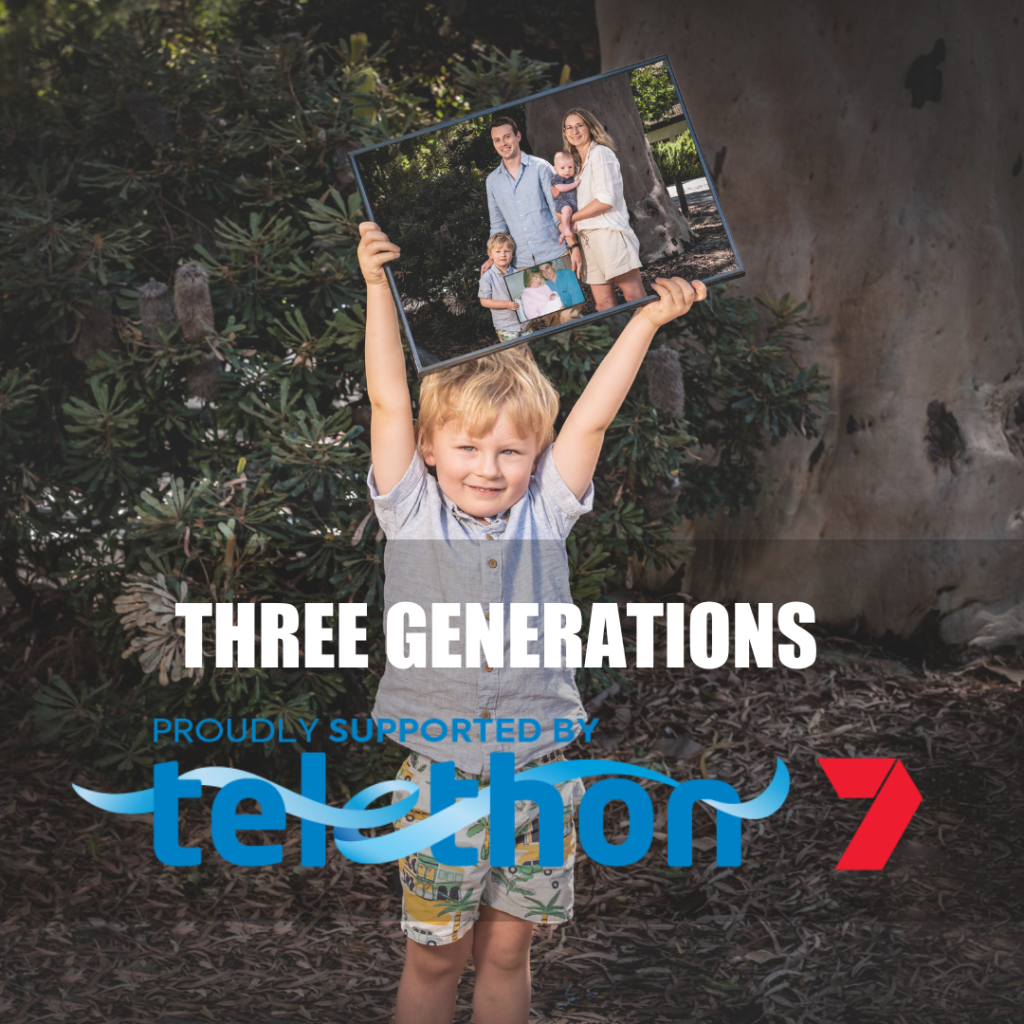- World-first Western Australian-based Raine Study has tracked almost 3,000 young adults and their parents since they were 18 weeks in-utero
- Funding from Channel 7 Telethon Trust will make it the first 3-generation pregnancy cohort in the world
24 March 2023: The Raine Study is delighted to announce that it is one of the Channel 7 Telethon Trust’s Beneficiaries for 2023.
Grant funding of $122.892.70 has been awarded to the Raine Study’s Scientific Director, The University of Western Australia Associate Professor Rebecca Glauert. Thanks to Telethon’s generosity, the Raine Study can now start recruiting a world-first third generation of participants to the three-decades old longitudinal cohort.
Since 1989, the Raine Study has been making life-changing discoveries as the world’s first pregnancy cohort study. 2,900 pregnant women from Perth’s King Edward Memorial Hospital were invited to take part in a study of ultrasound during pregnancy, with the goal of helping scientists investigate the origins of a child’s future health from before they were born.
Those parents (Generation 1) and their babies (Generation 2) have since taken part in seventeen different follow-up studies, contributing to ground-breaking research on physical health, mental health, lifestyle, and genetics. The babies are now 33 years old and are having their own children (Generation 3).
With funding from Telethon, the Raine Study can commence recruiting all current and future children born to the original Raine Study babies. This will make it the first 3-generation pregnancy cohort study in the world, with the potential to improve understanding of the intergenerational determinants of health and wellbeing across three generations.
Unparalleled opportunities for researchers
Associate Professor Rebecca Glauert says that this is a seminal grant for the Raine Study, and the impact of this grant funding is exponential. “It’s not just the collection of new data. The addition of a third generation of participants to the Raine Study will mean that existing data can be applied in new ways to enable intergenerational research that simply hasn’t been possible before now. The benefits will be felt not only in Australia but around the world.”
Current health data shows that around 40% of children in Australia will develop a long-term health condition. Researchers will now be able to trace the causes of these conditions across multiple generations and potentially intervene to reduce the likelihood of them developing in the first place.
Raine Study participants excited for the future
The current participants of the Raine Study are excited about the future benefits the involvement of a third generation of their family in the study can deliver. They say they would like to know if their fertility will impact their children’s future health and fertility, whether mental health problems transmit between generations, and the long-term impact of COVID-19 and climate change on their children’s health. This new grant will lay the foundations for researchers to be able to answer those questions.
About the Raine Study
Based in Perth, Western Australia, the Raine Study is one of the largest and longest-running studies of human health from pregnancy through childhood, adolescence, and adulthood to be carried out anywhere in the world.
Media contact: Kate Rowlands, Communications Manager, The Raine Study, kate.rowlands@uwa.edu.au, 0437 005 173

